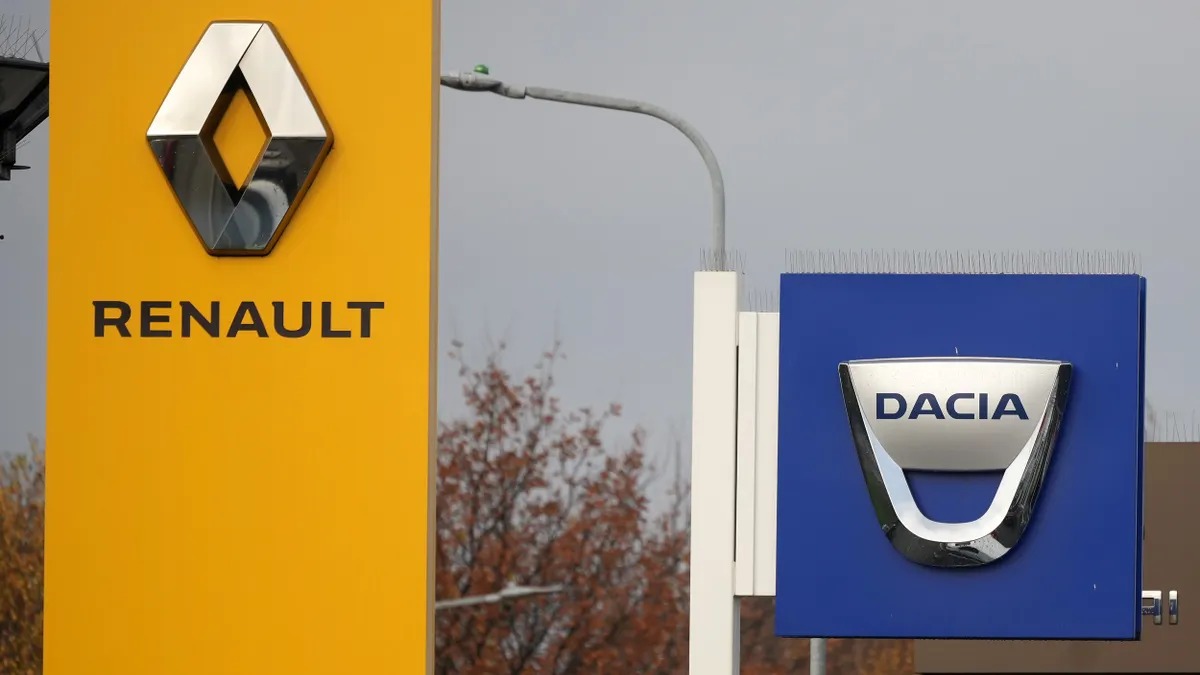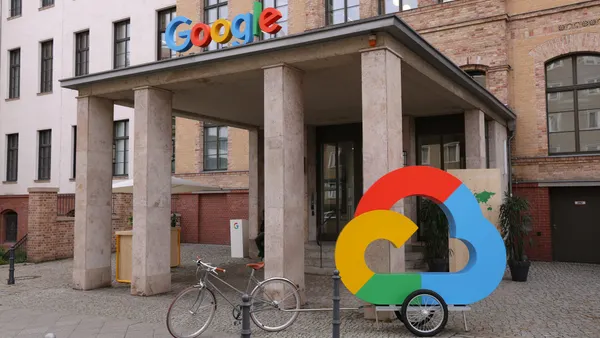Dive Brief:
- Renault Group appointed its CFO Duncan Minto to the role of interim CEO, effective July 15, according to a company release Tuesday. The move comes one month after the French automaker’s former CEO Luca de Meo announced his intent to step down from the position, also effective Tuesday.
- In his temporary role, Minto will “ensure the day-to-day management of the company” together with Jean-Dominique Senard, who will become chairman, the Paris, France based company said. The selection process for a permanent successor to the CEO seat is “already well underway,” according to the release.
- Also Tuesday, the automaker slashed both its free cash flow and its operating margin guidance for full-year 2025, with Renault now anticipating free cash flow of between 1.0 billion to 1.5 billion euros ($1.16 billion to $1.7 billion USD), versus the €2 billion forecast previously, according to a separate press release detailing preliminary results for its H1 of 2025. The company is also now expecting an operating margin around 6.5% compared to the 7% it expected previously for the year.
Dive Insight:
First joining Renault in 1997, Minto has “solid experience in finance and a deep understanding of the issues at stake,” the automaker said in its Tuesday announcement. During his time at Renault, Minto has served in various regional and divisional CFO roles, including a four-year term as finance chief for its Asia Pacific market and as CFO for its Dacia Brand, according to his LinkedIn profile.
The interim CEO appointment comes as Renault looks to strengthen its cost reduction plan, after announcing it would be implementing additional measures to cut expenses in its first quarter earnings report in April, according to company releases.
Renault also recorded group revenue of €27.6 billion, a 2.5% increase. The automaker also reported free cash flow of €47 million, which includes “a significantly negative change in the working capital requirement” estimated at €900m excluding tax effects.
It attributed its preliminary results to lower-than-expected performance in June, including “an increasing commercial pressure due to the continuing decline in the retail market,” as well as underperformance of its light commercial vehicle business in what it described as a “sharply declining” market in Europe.
The European auto market has faced declining sales over the past several months, with new car registrations in the European Union falling by 0.6% in May compared to the prior year period, after seeing a 1.2% dip in April, according to figures from the European Automobile Manufacturers’ Association. In May, Renault Group saw a 4% increase in new car registrations for the month across its brands, including Renault, Dacia and Alpine, according to ACEA data.
Facing an increasingly competitive market, Renault will pursue a “strict commercial policy, prioritizing value creation over volume to protect its launches,” as well as moving forward with its cash reduction plan, the company said. Renault plans to announce its H1 2025 results on July 31.
EU automakers have come under further pressure amid the ever-changing tariffs proposed by the Trump administration. On Saturday, President Donald Trump announced the U.S. will implement 30% tariffs on imports from the EU and Mexico, CFO Dive sister publication Supply Chain Dive previously reported, to be effective Aug. 1. EU auto imports already face a 25% tariff, alongside a 50% tariff on aluminum and steel, causing economists to warn the additional tariffs could hamper the region’s economic growth, according to a report by The New York Times.
Other European automakers have already reported negative impacts from the Trump administration’s tariffs. On Monday, Volvo Car AB announced it would be taking a non-cash impairment charge of 11.4 billion Swedish kroner (approximately $1.2 billion USD) for its second quarter, as U.S. import tariffs hamper its ability to sell certain of its models profitably in the market, according to a press release. Margins for other vehicles are also under pressure in the EU also due to tariffs, the German automaker said.
U.S.-based auto firms such as Tesla, meanwhile, have also reported feeling the effects of tariffs; the electric vehicle maker’s CFO, Vaibhav Taneja, warned during the company’s most recent earnings call in April that tariffs would have “various impacts” on its business, CFO Dive previously reported. The electric vehicle maker’s net income slid 71% for its Q1 of 2025, while vehicle deliveries slid 13%.
Renault declined to comment on the interim appointment beyond its press release.
















